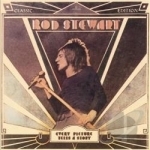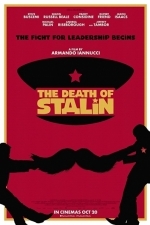
Batwoman Vol. 1: The Many Arms of Death (Rebirth)
Book
Fresh from her adventures in DETECTIVE COMICS, Katherine Kane returns with her own DC Rebirth...
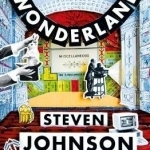
Wonderland: How Play Made the Modern World
Book
'The book is a house of wonders' The New York Times 'Steven Johnson is the Darwin of technology'...
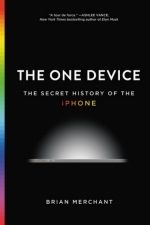
The One Device
Book
SHORTLISTED FOR THE FT & MCKINSEY BUSINESS BOOK OF THE YEAR AWARD 2017 The secret history of the...
Technology history
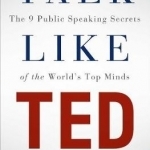
Talk Like TED: The 9 Public Speaking Secrets of the World's Top Minds
Book
TED talks have redefined the elements of a successful presentation and become the gold standard for...
Joe Elliott recommended Every Picture Tells a Story by Rod Stewart in Music (curated)
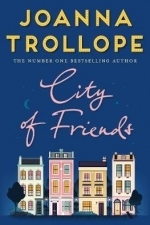
City of Friends
Book
City of Friends is the twentieth novel from the highly acclaimed number one bestselling author,...
Fiction
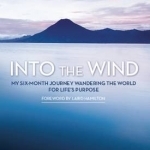
Into the Wind: My Six-Month Journey Wandering the World for Life's Purpose
Book
Without a map, nineteen-year-old Jake Ducey leaves behind a drug-filled life and college basketball...
Whisperin' Bill Anderson: An Unprecedented Life in Country Music
Bill Anderson and Peter Cooper
Book
Whisperin' Bill: An Unprecedented Life in Country Music presents a revealing portrait of Bill...
Bob Mann (459 KP) rated The Death Of Stalin (2017) in Movies
Sep 29, 2021
Rupert Friend (centre) tries to deliver a eulogy to his father against winged opposition. With (from left to right) Michael Palin, Jeffrey Tambor, Steve Buscemi and Simon Russell Beale.
It should come as no surprise then that his new film – “The Death of Stalin” – follows that same pattern, but transposed into the anarchic and violent world of 1950’s Russia. Based on a French comic strip, the film tells the farcical goings on surrounding the last days of the great dictator in 1953. Stalin keeps distributing his “lists” of undesirables, most of who will meet unpleasant ends before the end of the night. But as Stalin suddenly shuffles off his mortal coil, the race is on among his fellow commissariat members as to who will ultimately succeed him.
Stalin…. Going… but not forgotten.
The constitution dictates that Georgy Malenkov (an excellently vacillating Jeffrey Tambor) secedes but, as a weak man, the job is clearly soon going to become vacant again and spy-chief Lavrentiy Beria (Simon Russell Beale) and Nikita Khrushchev (Steve Buscemi) are jostling for position. (No spoilers, but you’ll never guess who wins!). Colleagues including Molotov (Michael Palin) and Mikoyan (Paul Whitehouse) need to decide who to side with as the machinations around Stalin’s funeral become more and more desperate.
The film starts extremely strongly with the ever-excellent Paddy Considine (“Pride”) playing a Radio Russia producer tasked with recording a classical concert, featuring piano virtuoso Maria Yudina (Olga Kurylenko, “Quantum of Solace”). A definition of paranoia in action!
Great fingering. Olga Kurylenko as Yudina, with more than a hand in the way the evening’s events will unfold.
We then descend into the chaos of Stalin’s Russia, with mass torture and execution colouring the comedy from dark-grey to charcoal-black in turns. There is definitely comedy gold in there: Khrushchev’s translation of his drunken scribblings from the night before (of things that Stalin found funny and – more importantly – things he didn’t) being a high point for me. Stalin’s children Svetlana (Andrea Riseborough, “Nocturnal Animals”) and Vasily (Rupert Friend, “Homeland”) add knockabout humour to offset the darker elements, and army chief Georgy Zhukov (Jason Isaacs, “Harry Potter”) is a riot with a no-nonsense North-of-England accent.
Brass Eye: Jason Isaacs as the army chief from somewhere just north of Wigan.
Production values are universally excellent, with great locations, great sets and a screen populated with enough extras to make the crowd scenes all appear realistic.
Another broad Yorkshire accent: (the almost unknown) Adrian McLoughlin delivers an hysterical speaking voice as Stalin.
The film absolutely held my interest and was thorougly entertaining, but the comedy is just so dark in places it leaves you on edge throughout. The writing is also patchy at times, with some of the lines falling to the ground as heavily as the dispatched Gulag residents.
It’s not going to be for everyone, with significant violence and gruesome scenes, but go along with the black comic theme and this is a film that delivers rewards.
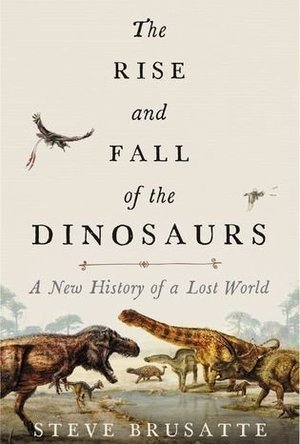
The Rise and Fall of the Dinosaurs: A New History of a Lost World
Book
A sweeping and revelatory new history of the age of dinosaurs, from one of our finest young...
